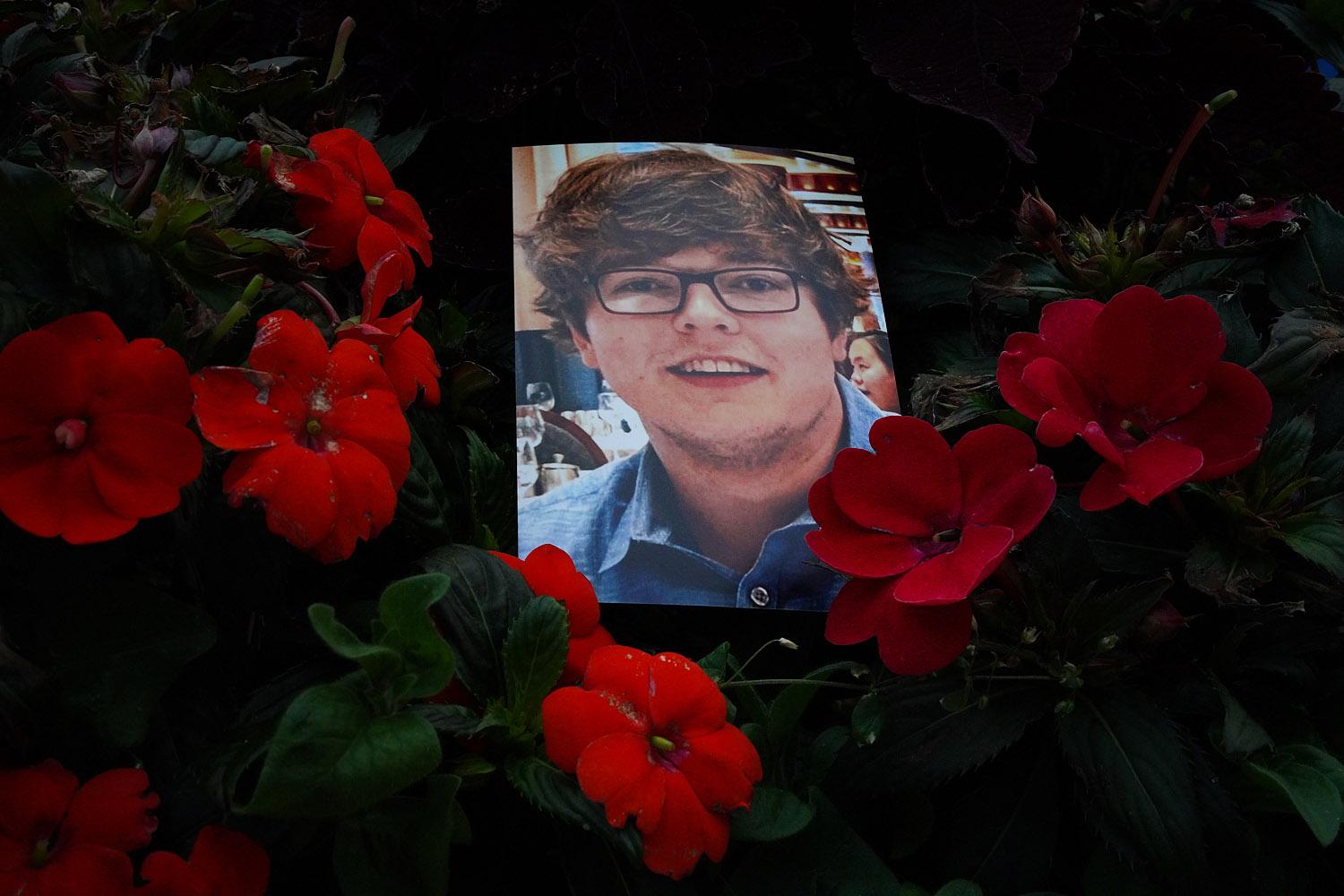
This year, Colorado lawmakers gave new power to teachers, nurses, doctors and others to use the state’s ‘red flag’ gun law. These professionals now can ask judges to take guns away from potentially dangerous people they encounter at work.
So far, though, they aren’t doing it often.
After reviewing all of the state’s red flag cases through mid-July, CPR News could confirm only one instance where a health or education professional has tried to use the expanded law since it was implemented late in April.
That single instance involved a social worker who was working alongside Lakewood police when they encountered an allegedly unstable man. A judge rejected the petition — another illustration of the growing pains that the ERPO law has faced as police, judges and everyday people have learned to navigate its changing requirements.
Meanwhile, institutions such as hospitals and schools are still deciding whether to embrace the expanded version of the law. For example, Denver Public Schools is not training teachers about their new ability to file red flag petitions, despite the city of Denver’s overall embrace of the red flag law.
State Rep. Jennifer Bacon, a Democratic sponsor of the law, said the slow start for the expanded law was surprising, but she expected that to change as the state launches an educational campaign about the red flag process.
“I don't think I expected none or just one [person to file a petition], but I didn’t necessarily expect a deluge,” she said, adding that schools being out of session for the summer may slow educators’ use of the new law.
“I would say to give it more time,” Bacon said.
Previously, ‘red flag’ petitions could only be filed in Colorado by law enforcement or by people with close ties to the respondent.
This year, Democrats expanded the law — allowing professionals in the fields of mental health, medicine and education to initiate the process, too — in the hopes that those people could use the law to defuse potential violence.
Meanwhile, the expansion drew criticism from gun rights advocates, who worried it would give teachers and others too much power to limit people’s Second Amendment rights.
The very first case?
The state’s courts have already made adjustments under the new law, including by updating the paperwork that is filed by petitioners.
But there’s still confusion about the new law. In the case identified by CPR News, a licensed clinical social worker filed a petition because he said he was concerned about a Jefferson County man whom he had encountered while working with the Lakewood Police Department.
| Questions, concerns or a story to tell about Colorado’s ‘red flag’ law? Contact the reporter. |
The social worker said the man was paranoid with “an untreated mental health disorder,” and that the man believes that “people are after him” and had told a Lakewood police agent that he owned several guns, including an AK-47 rifle and a handgun, although the petition did not detail any explicit threats the man had made.
“As a licensed clinical social worker, with my training and knowledge, these are concerning patterns of behavior which has a likelihood of someone harming another person or themselves,” the social worker wrote. The man and his employer declined to provide more detail when contacted by CPR News.
The social worker’s effort to persuade a judge to order the seizure of the man’s guns didn’t go far. The case was almost immediately dismissed by Judge Bradley Burback, who found the social worker didn’t have legal standing for the red flag request.
That’s because the social worker had not directly provided care for the man as a client. The social worker was serving as a co-responder with Lakewood police when he met the man. Co-responders are mental health and social service workers who accompany police, an increasingly popular approach that is meant to get people help instead of simply arresting them. But the judge found that meeting someone as a co-responder is different than providing care to them.
The man “would probably have a pretty good argument to have the order thrown out,” the judge said in a court hearing, according to a transcript.
“This is a new statute and we're just trying to figure it out,” the petitioner then told Judge Burback.
“So, you’re sort of the experiment?” Burback asked.
“Unfortunately, a little bit, sir,” the petitioner responded.
The case was dismissed on June 1. The judge suggested that Lakewood police could decide to file the case themselves instead. Police tend to be more successful than other groups in pursuing ERPO cases in Colorado, a CPR News investigation found.
The department has not since filed an ERPO against the man in question, according to court records. Even if they had, it is unclear whether a petition would succeed; the petition did not describe an explicit threat, which is often a key component in convincing a judge that there’s a “significant risk” of gun violence.
“As part of our on-going partnership with [Jefferson Center for Mental Health] and our co-responders, we continuously look at new / changing laws and how to apply them to best protect our community,’ wrote department spokesperson John Romero in an email.
State Rep. Bacon expects cases to run more smoothly — and perhaps become more common — in the future. The new law requires the state’s Office of Gun Violence Prevention to advertise the new law. The office expects to launch a $1.3 million bilingual “statewide awareness campaign” this month about gun laws.
“We heard the feedback that people didn't know that this was an opportunity before,” she said.
In the Lakewood case, Judge Burback similarly suggested it was “going to take some time before you figure out exactly how the new statute works.”
The state’s Department of Public Safety has also launched an ERPO hotline to provide information and referrals, but not legal advice. That hotline — at 855-999-3776 — is expected to require three full-time staffers and cost close to $300,000 a year to operate.
In red flag cases, judges can order a temporary two-week seizure based solely on the information provided by the petitioner, such as a police officer or teacher — leading to criticism that the expanded law could lead to more infringements on gun rights. The judge still must hold a court hearing and consider both sides’ evidence before issuing a full, one-year gun ban.
How will schools and hospitals react?
The new law also poses a challenge for schools, hospitals and others: How much should they get involved?
Colorado Springs School District 11 is taking a relatively hands-off approach. “This new law does not affect or require the district to do anything at this time. The law allows certain educators to be able to file a petition for an extreme risk protection order, but no one on our staff has filed to date,” wrote spokesperson Devra Ashby in an email.
Denver Public Schools is not responding to the new law, either. Red flags are “not something we track or train on,” said spokesperson Will Jones.
Other organizations said they would provide training or basic information to staff.
Centura Health is “planning to conduct training for our caregivers across our ministries in Colorado,” while UC Health is “still developing” its approach.
HealthONE, another of the state’s major hospital chains, said that it would share a two-page Colorado Hospital Association memo explaining the law with staff.
The law also allows district attorneys to file red flag petitions. Howard Black, spokesperson for the El Paso County District Attorney’s Office, said they were “in the process of developing in-house protocols.” Authorities in the county were criticized because they didn’t file a red flag petition against the Club Q attacker, despite earlier threats.
Beth McCann, the district attorney for Denver, said that she would train her deputies under the new law, but didn’t anticipate a big change, especially since Denver police have already embraced the law more than any other agency in Colorado.
“I think it's pretty much going to be left up to the individual elected district attorneys, how much they want their office to be involved,” she said. “I don’t anticipate that there will be a huge influx of these kinds of filings [from DA’s offices] because it's a pretty limited set of facts in order to get an ERPO.”








